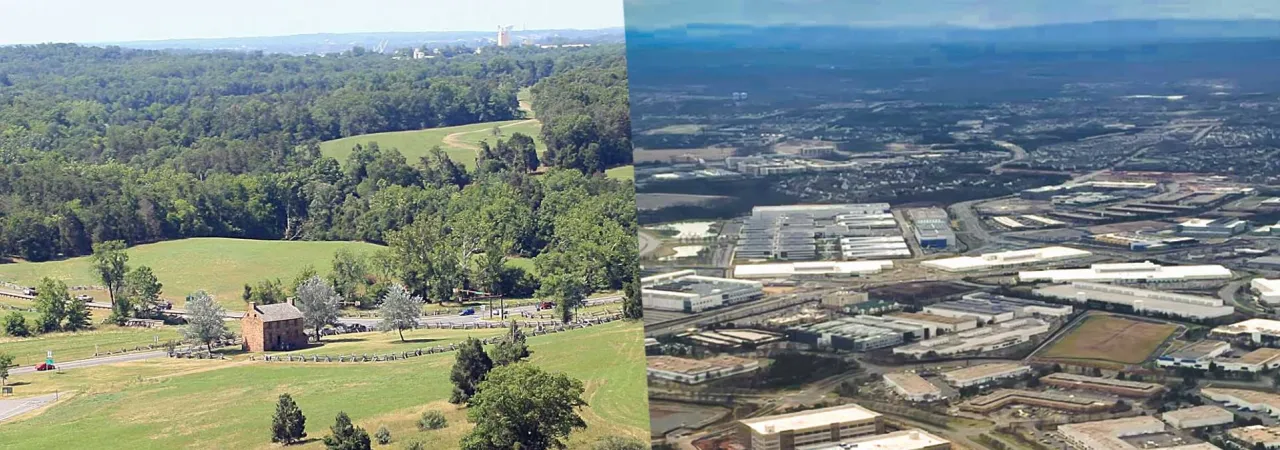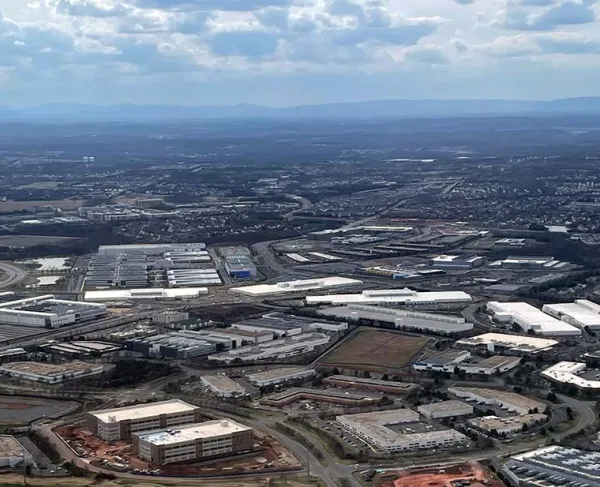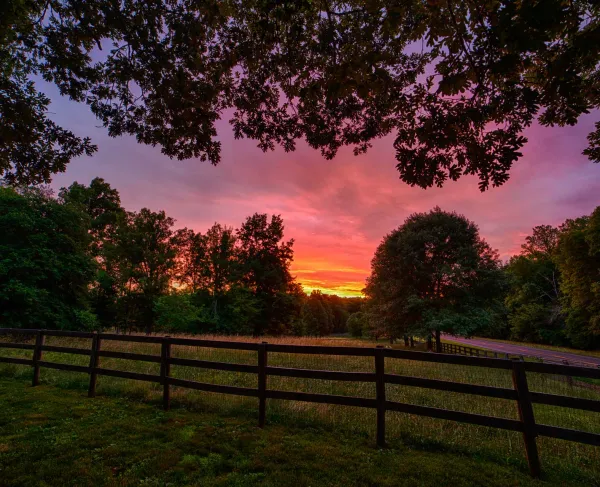
Protect Mid-Atlantic Battlefields from Massive Data Centers
For decades, developers have purchased America’s irreplaceable battlefield land to build housing subdivisions, racetracks, shopping malls and even casinos. But now, our nation’s unprotected hallowed ground faces a new generation of aggressive, once unimaginable threats: massive warehouse-style data centers, financed by the richest companies on earth, chewing up hundreds of thousands or even millions of square feet of land.
The dire situation at the Wilderness, where the American Battlefield Trust is engaged in a lawsuit to stop data center construction, landed the site on the 2024 list of the country’s 11 Most Endangered Historic Places from the National Trust for Historic Preservation. Learn more about the threat and how you can help.
Often bigger than shopping malls, data centers are hulking, windowless monstrosities that use enormous amounts of electricity to keep their computers running and support “the cloud” of remote information storage. One developer recently called the region between Richmond, Virginia and Washington, D.C., “The Data Center Hotspot of the World” because, as of May 2023, 70% of the world’s internet traffic runs through this region. In the past two years, the Trust has seen data center threats that would impact Brandy Station, Deep Bottom, Glendale, Manassas, North Anna and the Wilderness. And they’re spreading, creeping into Maryland and Pennsylvania! Virtually any battlefield from Gettysburg to Petersburg might find itself in the crosshairs.
It’s not just the physical data center buildings, either – it's their immense power demands straining the grid. A $500 million project was proposed to build a 70-mile high-voltage transmission line cutting across Maryland to supply energy for Northern Virginia’s rapidly expanding data center industry. This underscores the significant infrastructure costs, environmental challenges, and threats to hallowed ground; the initial plan went through the Monocacy Battlefield, near Frederick, Md. Thankfully, an alternate route was ultimately selected, narrowly skirting that historic landscape.
We need to take a stand here and now. That’s why the American Battlefield Trust is a plaintiff in two separate substantive lawsuits to highlight procedural errors in how massive developments in Orange and Prince William counties were considered and approved. Although the Trust is not opposed to progress and recognizes the infrastructure needs of our modern society, a simple fact remains: Once you pave over a battlefield or other historic landscape, it is lost forever. Land use decisions of such magnitude should be made with care and transparency by elected officials, not rushed or obscured, as these were.
Make a gift today to support these efforts
Data centers make terrible neighbors, whether to a battlefield, a school or a residential street. They emit constant noise and consume massive quantities of water for cooling — according to Trust ally, the National Parks Conservation Association, a 15-megawatt data center can use up to 360,000 gallons of water a day! Worse still, because of their voracious appetites, data center impacts are far reaching. A complex might require multiple electric substations and miles of new transmission lines, which can transect neighborhoods, parklands and other sensitive areas. A data center consumes as much energy as 25,000 households per year and the industry may soon account for a fifth of the nation’s electricity consumption.
In Virginia, it’s even more stark: According to regional transmission organization PJM, data centers are the only sector with increasing demand and because of them the state’s peak load on the grid is expected to double by 2040. The cost of the infrastructure to support the world’s internet habit is passed along to Virginia residents via their electric bills. Perhaps unsurprisingly, these datacenters are deeply unpopular with nearby residents. According to a May 2023 NPCA poll, 86% of Northern Virginia residents, a percentage consistent across party lines, want to prohibit data centers within 1 mile of National Parks and historic sites!
In December 2023, the Trust was proud to join a new statewide effort calling for commonsense steps that will help ensure the Commonwealth takes a more comprehensive view of how this sector’s unchecked growth is impacting communities and cultural and environmental resources. The Virginia Data Center Reform Coalition is asking legislators to advance bills that provide meaningful oversight and reform of the data center industry. A new report issued in December 2024 by Virginia’s Joint Legislative Audit and Review Commission (JLARC), that advises the General Assembly, predicted a 183% increase in energy use over 15 years just to keep the data centers running. While the report fell short in addressing the threats posed by data centers near historic resources in Virginia, the Trust encourages the General Assembly to adopt the JLARC recommendation that all companies be required to conduct a historic resource study.
We believe it is important that our country continues to preserve and protect its battlefields and historic sites from massive data centers. If you agree, please take a moment:





